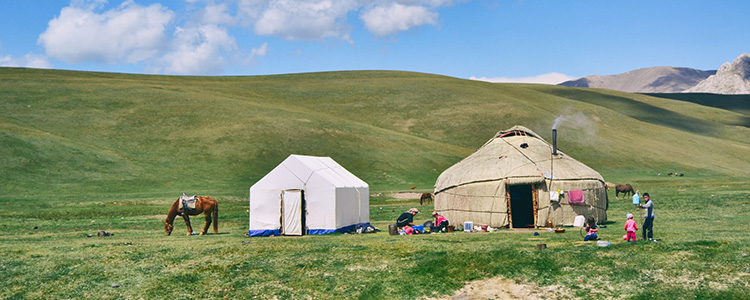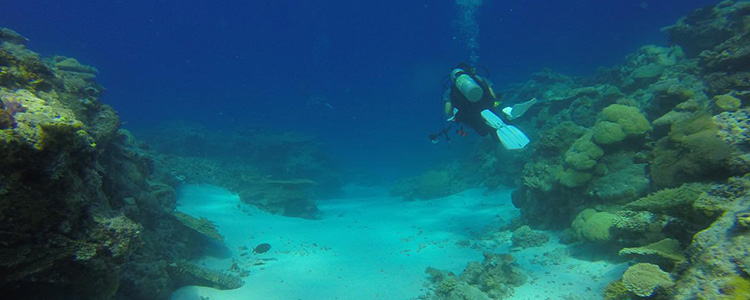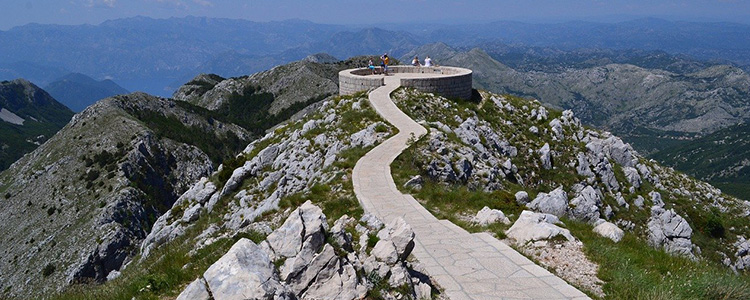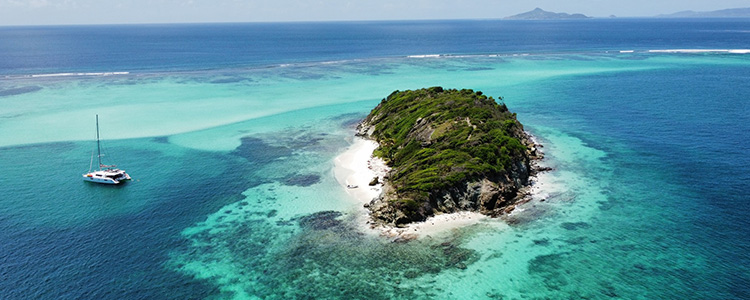Argentina Country Bundle: suggestions, stories and tips
Content about Argentina on WorldSupporter
 Argentina: Updates & Travel
Argentina: Updates & Travel
Travel in Argentina
- In South America lies a beautiful country where you can see all the seasons pass by from top to bottom. The country of tango, Malbec, Asado, pampas, Evita and gauchos! Pack your backpack and go to Argentina, one of the most beautiful countries in the world!
- Buenos Aires is a city of millions on the west coast of Argentina. Wide avenues, palm trees, beautiful buildings and trendy shops characterize this world city. Spread throughout the city are parks and small lakes, where the Argentinean seeks cooling in the hot summers. Especially in the evenings, the South American temperament comes to the fore and the Argentinos dive into restaurants, cafes, bars and nightclubs until the early hours.
- Patagonia & Tierra del Fuego (Fire Island): If you like a walk, Patagonia is a great destination. You can hike through rugged landscapes for days, climb mountains and even visit the South Pole (although that is expensive). Timing is essential when visiting this part of Argentina. Our winter is the best time.
- Skiing in the Andes: For example, go to Bariloche (one of the most famous ski locations) or Las Leñas, an emerging ski area.
- An antique market is held every Sunday in the San Telmo district of Buenos Aires. A lot of junk and fake vintage but also a wonderful atmosphere and tango on the streets.
- Bariloche, the chocolate capital of Argentina is not only a beautiful town but also has a very impressive environment. Go skiing or rent a car and explore the beautiful nature parks in the area. Imagine yourself in the Alps through the Swiss chalets and enjoy the snow-capped peaks that reflect beautifully in the crystal clear lakes.
- Puerto Madryn. This is the starting point for excursions to the Peninsula Valdes. Penguins, elephant seals, many species of birds, sea lions, you see them all here! Did you miss the whales early in the morning in the bay of Madryn? You can take a boat trip to see them anyway, but first check your travel guide for a reliable tour company that approaches the whales in a respectful way.
- Iguazú, a magnificent waterfall, can be viewed from both the Argentine and Brazilian sides. Iguazú means “great waters” in the language of the Guarani Indians. The devil’s throat, Garganta del Diabolo, makes every screamer fall silent, because it is one and a half times as high as the Niagara Falls (70 meters).
- Visit “Los Glaciares National Park”, about 40% of the land surface is covered with glaciers. The largest glacier is Upsala, the most interesting is the Moreno glacier. This ends in the “Lago Argentino” where broken pieces float like icebergs.
- The distances, differences in prosperity & the (almost) impossibility of eating vegetarian. The Argentines love large pieces of red meat.
Updates Argentina
- More about Argentina, updates and contributions, see the link below.
 How does healthcare work in Argentina, and what travel insurance, health insurance or expat insurance do you need?
How does healthcare work in Argentina, and what travel insurance, health insurance or expat insurance do you need?
- How does the healthcare system work in Argentina?
- What is the quality of healthcare in Argentina?
- How does the public healthcare system work in Argentina?
- How does the private healthcare system work in Argentina?
- How is the general practitioner arranged in Argentina?
- How is the dentist arranged in Argentina?
- How is pregnancy care arranged in Argentina?
- How safe or unsafe is a trip or stay in Argentina?
- What work and travel insurance policies are suitable for short and long stays in Argentina?
- What emigration and expat insurance can you take out for Argentina if you are going to live there for a while?
How does the healthcare system work in Argentina?
What is the quality of healthcare in Argentina?
- Argentina has one of the best healthcare systems in South America! In particular, the bustling Buenos Aires and large cities such as Córdoba and Mendoza have modern hospitals with well-trained healthcare staff.
- Healthcare in the country is decentralized, which means that healthcare is often arranged at the level of the municipality, or even the city. This also results in differences in quality (in public healthcare).
- Argentina has a mixed healthcare system, consisting of public (Sistema de Salud Pública), private (Medicina Prepaga) and social (Obras Sociales) healthcare.
- The quality of healthcare is not the same everywhere. For example, as in many other countries, it differs greatly between public and private healthcare, but also between urban and rural areas.
- Most doctors speak at least some English, but do not always expect this to be fluent. It can therefore be useful to speak a few words of Spanish or to take someone with you. Google Translate is also popular.
- Pharmacies can be found almost everywhere and many medicines can be picked up without a prescription. Call 107 for an ambulance. In the big cities, the ambulance is arranged by SAME (Sistema de Atención Médica de Emergencias). The emergency room in the hospital is called “Guardia” or “Emergencias” in Spanish.
How does the public healthcare system work in Argentina?
- Argentina has a very friendly public healthcare system: the Sistema de Salud Pública. Healthcare is largely free of charge, not only for residents, but also for foreigners!
- Unfortunately, the quality of healthcare varies. In the cities, some hospitals are good, but there are long waiting times and sometimes there is a shortage of resources. For these reasons, only about 50% of the population uses public healthcare. Most expats skip public healthcare and opt for private healthcare.
- Specialist care under the public healthcare system can also be limited.
How does the private healthcare system work in Argentina?
- For better, faster and more specialist care, the private sector is a solution. The facilities are also much more modern.
- Working Argentines and expats are required to be insured under the Obras Sociales, a health insurance paid by both employer and employee. The arrangements are monitored by the National Health Insurance Administration. Nevertheless, care is outsourced to private providers. The costs depend on the coverage, but the insurance must at least provide medical coverage for preventive care, diagnostic care, dental care and pregnancy. It is important to know that as a patient you sometimes still have to pay contributions, namely the difference in costs between the fixed reimbursements and the costs of the treatment.
- Another option is a classic private insurance. Only a small part (around 5-10%) of the population in Argentina chooses this.
- It is important to know that many private health insurances are locally focused and the system is very complicated to figure out. This can mean that care in other parts of the country is not reimbursed. For this reason, an international health insurance, which offers coverage everywhere and also in neighboring countries, is often a better fit for foreigners living in Argentina. Please note that you often have to pay for care on the spot and can only claim this later from your insurer.
How is the general practitioner arranged in Argentina?
- In Argentina, people usually go directly to a specialist or clinic. In public healthcare, this means a visit to a general practitioner or specialist in the hospital; there are no public GP practices. People go to the emergency room for minor problems (severe flu, sprains). Fortunately, hospitals work efficiently and people are often quickly referred to a specialist.
- In the private healthcare sector, you can choose your own GP or specialist without a referral.
- Registration is not necessary; you can visit a doctor of your choice.
How is the dentist arranged in Argentina?
- Dental care is generally of good quality. People usually choose private dentists, who are relatively affordable and provide good care.
- A standard consultation costs somewhere around 20-50 USD. Ask other reliable sources which dentists they have had good experiences with.
How is pregnancy care arranged in Argentina?
- Child mortality is low and is around 8 per 1,000 births, which generally means that maternity and postpartum care in the country is of good quality.
- The public sector offers free pregnancy check-ups and deliveries.
- Private care offers more personal guidance and privacy. Most expats therefore opt for private care. There are good private hospitals in the big cities that can also provide good care for high-risk pregnancies.
- Caesarean sections are more common in private care.
- Abortion is legal up to the 14th week of pregnancy. After that, it is possible in specific cases.
How safe or unsafe is a trip or stay in Argentina?
What should you pay attention to in terms of safety in Argentina?
- Argentina is generally a safe country, as long as you keep an eye on your belongings. Pickpockets are often active, especially in tourist areas and in Buenos Aires. The city of Rosario has more crime than the other cities in Argentina.
- Violent crime also occurs, but much less.
- Protests take place regularly, especially in the capital, and these can get out of hand. It is therefore wise to avoid these types of gatherings.
- Also be aware of natural hazards. Earthquakes can occur in the west, floods in the north and east and stormy weather in Patagonia. There are also volcanoes on the border between Argentina and Chile that can erupt at any time.
- Wildfires can occur all year round, throughout the country.
What should you look out for in terms of diseases in Argentina?
- Mosquito-borne diseases are quite common in Argentina. Think of dengue, chikungunya and zika, for example. So protect yourself well against mosquito bites!
- Check well before departure which vaccinations you need.
- The Hantavirus is common in Argentina. The virus is spread by infected rodents. It is important to avoid contact with these animals (both dead and alive) and their burrows and droppings.
What should you pay attention to when it comes to traffic in Argentina?
- Driving can be quite a challenge. Accidents happen relatively often because traffic lights are ignored, no right of way is given, motorcycles race through everything like crazy and people can drive aggressively and unpredictably.
- Thieves may stop your car at the traffic lights. So keep doors and windows closed!
- Also be careful with taxis. Fraud and robbery via taxis occurs, especially at the airport. Do not share taxis with strangers and always opt for reliable taxi companies.
What work and travel insurance policies are suitable for short and long stays in Argentina?
Is the trip to Argentina and your return sufficiently covered? Are you sufficiently covered before, during and after your activities? Which insurance best suits your trip and your activity? Read more about insurances for abroad on JoHoinsurances.org.
What emigration and expat insurance can you take out for Argentina if you are going to live there for a while?
- To cover the costs of private healthcare and any medical repatriation and care outside Argentina, international private insurance is definitely recommended for expats.
- Make sure your insurance covers medical evacuation as well as coverage in neighboring countries. Read more about insurances for abroad on Expatinsurances.org.
 Packing list for Argentina, travel insurance for Argentina, and taking your belongings
Packing list for Argentina, travel insurance for Argentina, and taking your belongings
To pack and bring to Argentina
- What to take with you to Argentina: spotlighted
- What should you keep in mind when traveling to Argentina with your belongings?
- Are there mosquitoes in Argentina?
- Are there sandflies in Argentina?
- Can you buy DEET, or other mosquito repellents, in Argentina?
- Can you buy a joint or weed in Argentina, or take it with you to Argentina?
What to take with you to Argentina: spotlighted
Featured items:
- Documents: passport valid for at least 6 months after arrival and an online and/or offline copy of your passport is also always useful.
- Money: cash is king, so bring Argentinian pesos or USD. You can also use your Debit card.
- Care: high factor sunscreen, aftersun and lip balm. Buff for the cold.
- Protection: sturdy rain gear and waterproof packing cubes. Backpack rain cover.
- Outdoor and practical: travel cap or hat and sunglasses.
- Clothing: layers are king. Argentina has a huge variety of climates and weather conditions, so from warm to cold. Bring thick socks, a hat, gloves and a scarf for Patagonia. Light, airy clothing for the rainforest and stylish clothes for Buenos Aires.
- Shoes: comfortable sneakers/hiking shoes and good hiking boots if you are going to Patagonia. Flip-flops or sandals for the relaxed days. Medicines and travel kit: a small first aid kit with plasters, painkillers, blister plasters, hand sanitizer, ORS and mosquito repellent.
- Technology and equipment: world plug with type C & I and a power bank.
What are some other options for packing as well?
- Reusable water bottle with filter, because tap water is technically drinkable, but often tastes strange.
- Quick-drying travel towel.
- Bring hiking essentials, just in case (such as hiking poles, compass, tent, sleeping bag, headlamp or flashlight, etc.).
- Small umbrella.
- E-reader or offline entertainment for mountain adventures.
- International driving license.
- Sleeping bag liner.
What should you keep in mind when traveling to Argentina with your belongings?
- That the weather conditions can vary greatly depending on where you go and the weather can change quickly.
- That fashion is a thing in Argentina, especially in the cities.
Are there mosquitoes in Argentina?
- Mosquitoes are everywhere in Argentina and are active all year round. During the warm months and the rainy season, from October to March, there are usually more mosquitoes.
- In the high/cold areas you will have fewer or even no mosquitoes.
- In Buenos Aires mosquitoes can also be a huge problem during the rainy season.
- Mosquitoes are a health hazard because they can carry various diseases. Dengue fever is particularly common.
Are there sandflies in Argentina?
- There are sand flies in Argentina. In the north they are known for transmitting leishmaniasis.
- The hotspots for leishmaniasis are the provinces of Salta, Jujuy, Catamarca and Santiago del Estero.
Can you buy DEET, or other mosquito repellents, in Argentina?
- DEET and other mosquito repellents are generally readily available in Argentina, although shortages can occur during severe mosquito outbreaks.
- OFF and Fuyi are popular brands of mosquito repellent, available at pharmacies and supermarkets.
- When you want to be sure that you have mosquito repellent, especially during the rainy season in Argentina, bring your own.
Can you buy a joint or weed in Argentina, or take it with you to Argentina?
- Argentina is quite progressive. Possession of small amounts for personal use has been decriminalized (so not legal), but the rules are vague and vary by region.
- Buying or using in public is still illegal and can get you into a lot of trouble.
- Moral of the story: if you do it, keep it discreet and private. And no, a hostel terrace does not count as “private”. Better be safe than sorry.
- Medical marijuana is legal with the right papers. But do not bring cannabis into the country.
 Teaching English in Argentina: what is it, why should you do it and where should you go?
Teaching English in Argentina: what is it, why should you do it and where should you go?
Teaching English in Argentina on schools or through private lessons
What is working and teaching English in Argentina?
- Demand for teachers is high here, mostly for contracts of 9 to 12 months
- It’s possible to get a job here without either a degree or a TEFL certificate. However, you’ll seriously dent your earning potential by not having a recognized TEFL qualification, especially for non-native English speakers.
- If you can get a full-time contract, you’ll be teaching for 25 hours per week. However, it can be difficult to get enough hours and you may end up working for more than one school.
- Many schools work on a split-shift pattern, with classes early in the morning and later in the evening, so you’ll have lots of spare time during the day.
Where can you work as an English teacher in Argentina?
- Main TEFL regions: Buenos Aires, Mar del Plata, Mendoza, Córdoba, Santa Fe, Salta, La Plata and other smaller towns around the country
- Type of teaching: in-company training and private language schools
What is your salary when teaching English in Argentina?
- High inflation seems to be a repeating pattern in Argentina, salaries vary over time, and whether it will be sufficient to live from varies just as much.
- Pay is commensurate with your qualifications and teaching experience
- Your apartment will be by far your biggest expense as, other than that, the cost of living is low.
- If you get a well-paid job, you should be able to save enough money to travel around Argentina in your spare time, but you won’t be taking much back home with you.
In Dutch:
- Read more: Vrijwilligerswerk in het buitenland verzekeren (NL)
- Read more: Stage in het buitenland verzekeren (NL)
- Read more: Werken in het buitenland verzekeren (NL)



 Argentina
Argentina



























































